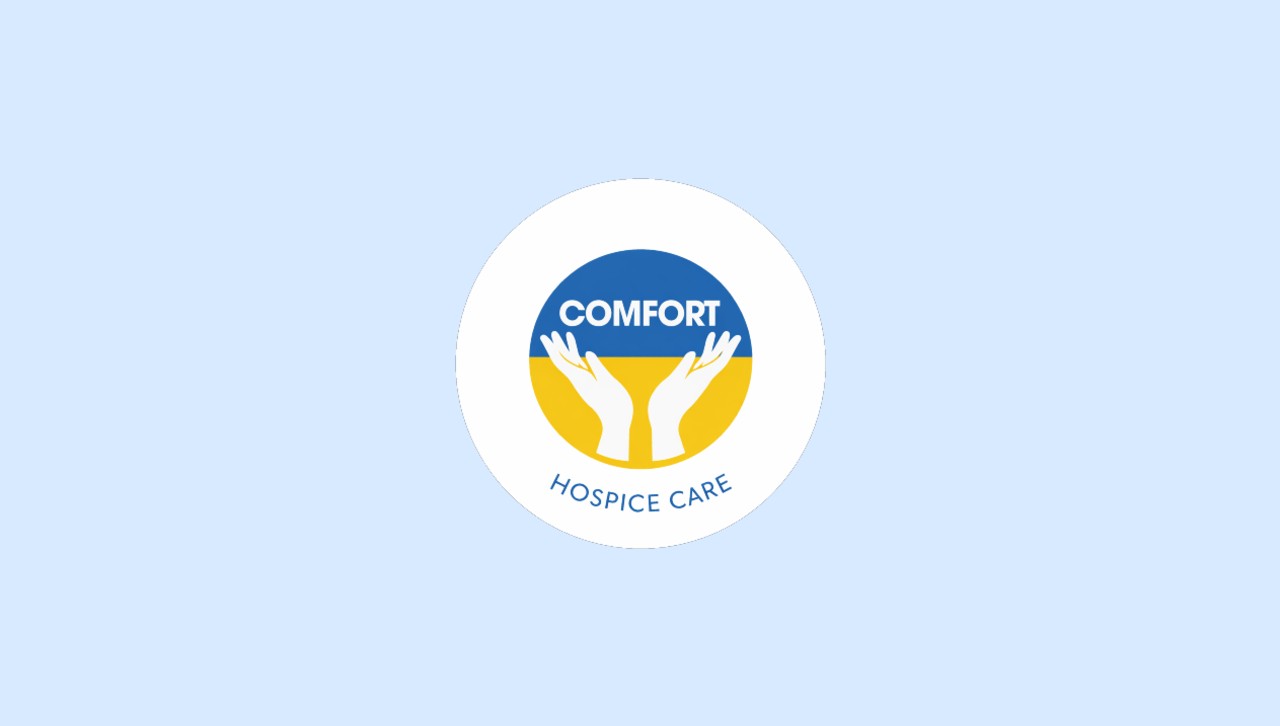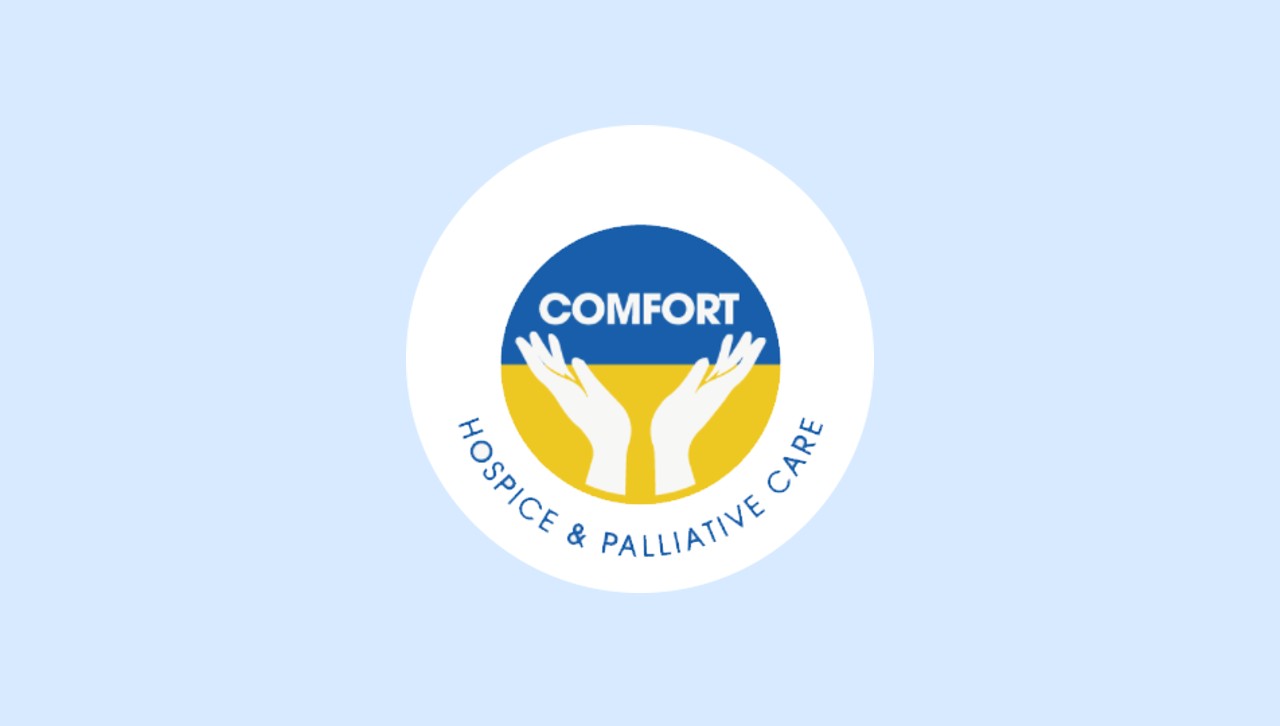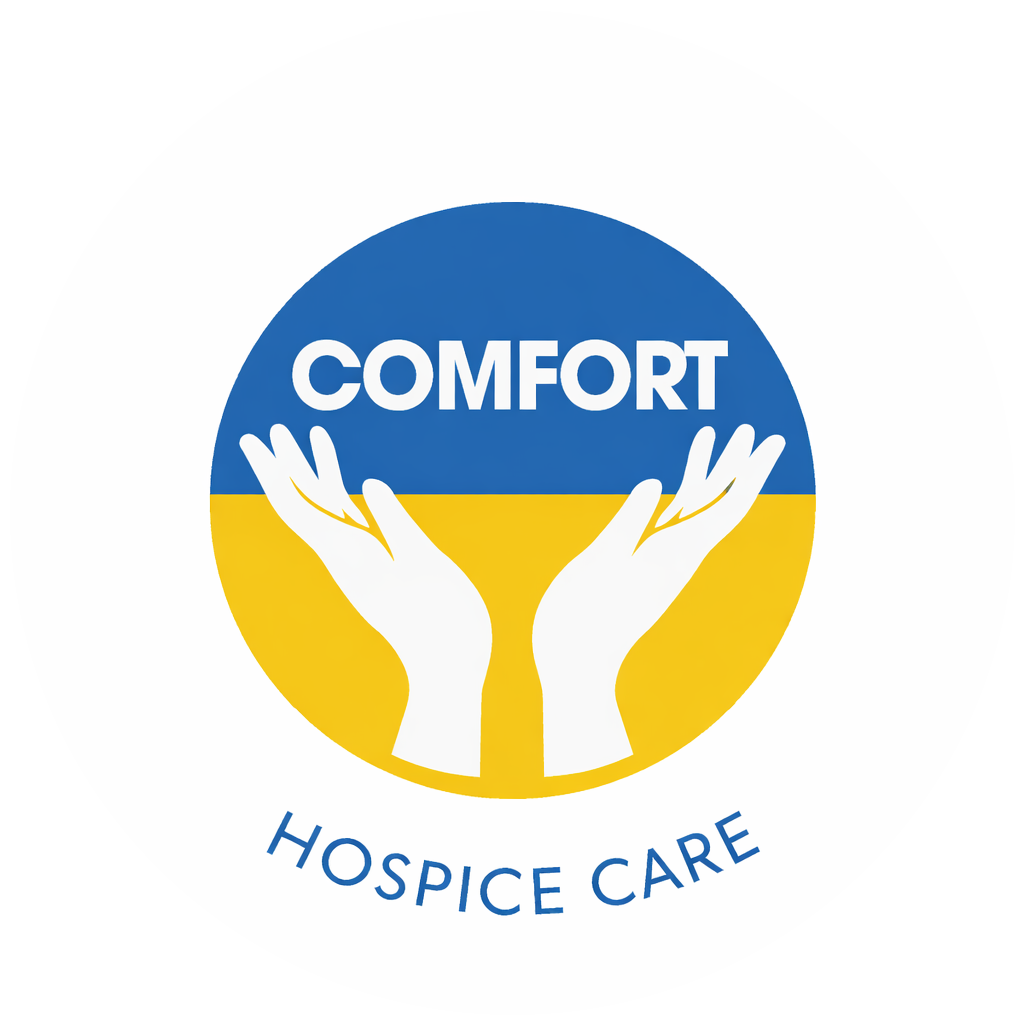



Call us for a Private Consultation 1-877-301-3338
We understand the process can seem a bit complicated, that’s why we’ve put together
resources to provide clarity and help you navigate the hospice process.

Our expertly trained staff works around the clock with family caregivers and clinicians in assisting through this transitionary process.
Hospice Overview
Hospice care is services that aid you or your loved ones in their last season of life. Hospice is for affirming life and dignity in passing. While you or your loved one is in hospice, their symptoms will be treated and managed as needed and according to their requests. Hospice does not hasten nor postpone the end, but it does help the transition be comfortable and gives its participants control back over their final moments.
Hospice utilizes family-centered ideals and allows the family to partake in all major decision making should the person in care request it. Hospice typically is for those who have been given six months or less left in their lifetime, and it is important to note that not all people who go to hospice will pass. Some do recover, and studies have shown that hospice is often not started soon enough because it helps bring back quality of life to the person in need.
Comfort Hospice employs a wide range of different services, seeking to provide all that one may desire in their final moments. End of life care is meant to make you or your loved one feel safe, dignified, and comfortable. This is meant to be a place of peace and honor for the one who may pass. The specialized approach includes mental, physical, emotional, social, and spiritual treatments to provide the person with their every need.
Hospice care covers all medication, medical supplies, and is often not just for the patient. Comfort Hospice provides arrangements for patient families who need emotional and spiritual support. These services extend beyond their loved one’s final moments as well. We ensure that our out of pocket costs are close to nonexistent, because we understand the hardship of losing one we love.
What to Expect from Hospice Care
It is important to prepare yourself emotionally and mentally for admitting a loved one into hospice care. However, prior to beginning care, the Comfort Hospice staff will review with you eligibility and what documentation is needed to begin.
These documents will be required for conducting a hospice evaluation: – Medical Coverage Cards, such as Medicare or Medi-Cal, Private Insurance Cards, etc. – A state-issued identification card, or a valid passport. – Medication and dosage documentation. – Any medical equipment currently used by the patient. – Existing home health agencies that are working with the patient.
Our staff will work with you as they review your needs for hospice care. Once these documents have been verified, the family members and the patient will work together with our team to develop a plan for treatment. This will be determined by what needs the family and the patient present, so each plan is tailored personally to you.
After the plan is agreed upon, Comfort Hospice will begin by contacting the patient’s physician for all additional medical history and paperwork. The staff will begin to prepare the patient’s home setting with the necessary equipment and devise a schedule for visits. Throughout this entire process, the patient and family will remain the priority.
Contact us today to learn more about how our hospice care can help improve the life of you and your loved one.
Call Comfort Hospice at 1-877-301-3338
What are the Benefits of Hospice?
Hospice care is a difficult choice to make for many, but it is important to note that it is not giving up hope – it is redefining it. Hospice is the time that we decide to rest and improve our last season of life, embracing the end and creating a better quality of life so our final moments are full of peace and dignity.
Hospice helps provide a sense of comfort in knowing that the time is coming and that there is a team of professionals there not just to help the patient, but to help the family as well as they transition to a new stage of life. End of life care is not for hastening nor postponing death, it is for making the patient and family as comfortable as they can be as the time comes.
Hospice care is meant to be for those with an estimated six months or less to live, but it does not have to be definite. In fact, some patients do transition out of hospice and find their time extended. Hospice workers are available at all times to keep the family and patient’s needs front and center. This allows you to focus on the most important thing: spending time together.
There are many fears that hospice care means refusal of services or care, but that couldn’t be further from the truth. Comfort Hospice staff provide for your mental, physical, emotional, and spiritual needs not just while your loved one is in care but also long after they pass.
Hospice care also provides end of life treatment with all medical supplies and medication included, and next to no out of pocket expenses. This allows you to alleviate some of the financial stress as you partake in the end of life care for your loved one. Choosing hospice sooner gives more time for both the patient and the family to accept the future and take control of their days, spending them together in comfort and ease as the final season ends for their loved one.
What is Palliative Care?
The objective of both services is to manage pain and provide relief for symptoms during end of life care, however, the goals and prognosis can be different. Hospice is comfort care that is no longer attempting to prolong death, while palliative care is comfort care that can be with or without prolongment care.
The two are very similar in approach, but differ in terms for payment, stages of disease, inclusion/exclusion of curative care, and where it is performed. Hospice is defined as compassionate comfort care for patients who have a terminal diagnosis and a physician’s estimate of six months left to live. Palliative care is defined as compassionate care intended to provide respite from symptoms of a life-limiting illness, while also relieving the physical and mental stress that accompanies it.
Hospice care is paid for by Medicare, Medicaid, or your insurance. This means that there is little to no out of pocket expenses for you or your loved one. Palliative care can be paid by your insurance or out of pocket. Also, palliative care can be utilized in any stage of illness while hospice services are for those with six months left to live. Palliative care typically happens while in the care of a medical facility, while hospice is wherever the patient decides for their end of life care. This can be at home, at a hospice facility, or in a hospital. Palliative care can be used at the same time as curative treatment, often to help aid in the management of physical, mental, and spiritual strife that accompanies the treatment. Hospice care excludes curative treatment and focuses solely on comfort.
Wherever you are in your journey with your loved one, Comfort Hospice and Palliative Care can help you find the plan that best works for you and your loved one.
Contact us today to learn more about how our hospice care can help improve the life of you and your loved one.
Call Comfort Hospice & Palliative Care at 1-877-301-3338
When is it Time for Hospice?
Determining when it is time for hospice can be difficult for you and your loved ones. However, studies show that hospice is often started later than it should be and those in end of life care would have benefitted from hospice care sooner. There are six distinct signs it may be time for hospice to consider.
First and foremost, in order to enter hospice care, you must have an estimated life expectancy of six months or less. This does not have to be a concrete timeline, it can be a loose estimate by the doctor. Some last longer, and some exit hospice as they no longer need it. This is a requirement though to enter the program and have all medications and medical care covered.
The second sign would be frequent or recurring infections, especially those that lead to multiple trips to the ER or hospitalizations. Entering hospice care will permit more frequent monitoring and training to the family on how to prevent these infections and also allow medical staff to enter your home instead of risking exposure to something worse in the hospital.
The third sign would be significant weight loss, loss of appetite, and changes in body composition. This can be due to a mental block from the dismay of your illness or other medical factors. Working with hospice care will help get to the root of the problem and also help you feel more in control of your diet and appetite.
The fourth sign is uncontrolled pain. Your diagnosis does not mean that you must suffer. Hospice care can help ease and control your pain while using compassionate healthcare. End of life care is about accepting the future, taking control of it, and maintaining comfort in your final days.
The fifth sign is a lack of alertness, withdrawal from others, and depression. Facing a terminal illness is exhausting for your body, mind, and soul. Comfort hospice provides care for your mental, physical, emotional, and spiritual care to guide you through the transitions during end of life care. These services are also for the family tending to the patient.
The sixth sign is the inability to perform daily tasks, such as walking, eating, using the restroom, personal cleaning, or getting dressed. Comfort Hospice will help your family in these tasks and help restore your comfort so that you may be able to begin assuming these tasks again. Staff are also on call for any needs that may arise in which the family or you need help.
Choosing to enter hospice can feel like the end, but its not. It is reshaping your mindset and making peace with your illness, while providing you and your family with a broader support network. Comfort Hospice is here to help.
Our expertly trained staff works around the clock with family caregivers and clinicians in assisting through this transitionary process.
Who Pays for Hospice Care?
Who pays for hospice care or end of life care? This is a frequent question asked by our patients and family members. Hospice care is fully covered by Medicare, Medicaid, and most major private insurances. There are no out of pocket expenses when qualified within programs. For those who are ineligible to receive medicaid or do not have private insurance, there are many assistance programs to cover costs.
Our program is an end to end hospice care service, and those who enroll into the program will be receiving complete hospice care. This means all staff visits, evaluations, medical equipment, medical supplies, medications, emotional therapy and inpatient care are covered 100%. We also offer bereavement care past the end of life care for family members.
Hospice is meant to ease your stressors and provide comfort to you and your family. We offer multiple programs for those in need because we know that it is important for you to be able to focus on what is truly important in your end of life care: making memories with those you love.
Do not hesitate to reach out, we are here to help.
Please call the Comfort Financial Staff to help answer any financial related concerns at 1-877-301-3338
How does Medicare Pay for Hospice?
Medicare Part A will pay for all hospice and end of life care if you meet the following requirements: • Your hospice doctor and your regular doctor (if you have one) certify that you’re terminally ill (with a life expectancy of 6 months or less). • You accept comfort care instead of care to cure your illness. • You sign a statement choosing hospice care instead of other Medicare-covered treatments for your terminal illness and related conditions.
Your costs in Original Medicare
You pay nothing for hospice care.
You pay a copayment of up to $5 for each prescription for outpatient drugs for pain and symptom management. In the rare case the hospice benefit doesn't cover your drug, your hospice provider should contact your plan to see if Part D covers it. The hospice provider will inform you if any drugs or services aren’t covered, and if you’ll be required to pay for them.
You may pay 5% of the Medicare-Approved Amount for inpatient respite care. You may have to pay for room and board if you live in a facility (like a nursing home) and choose to get hospice care.
Comfort Hospice is completely covered by Medicare, meaning all of our services are included in the hospice care budget of Medicare.
If you have any further questions about Medicare and our program please contact our specialists at: 1-877-301-3338
Will My Insurance Cover Hospice Care?
Hospice care is covered by most major insurance companies when you choose Comfort Hospice. Things that will be covered include all mental healthcare, spiritual care, physical care, and emotional care for you and your family, even after death.
Though what does that mean exactly? Our staff is well trained in cultural competencies and is capable of handling your specific spiritual, cultural, or emotional needs at the end of your days. We retain staff that are well trained in helping individuals cope with their mental health during this last season of life, and during end of life care, you can expect therapies in different modes such as group, one on one, or family therapy.
In terms of medical equipment and care: hospital beds, shower chairs, and other accessibility requirements are all covered as well. All medications are covered and all of the above will be delivered directly to the patient’s home with no out of pocket expenses. Hospice care does not cover curative treatments but will cover any and all compassionate care that is to help the patient transition comfortably and at ease. This can include a large array of items at your request. Never hesitate to ask your Comfort Hospice staff for anything you desire during this time, we will work with you to accommodate your requests as best as we can.
Our expertly trained staff works around the clock with family caregivers and clinicians in assisting through this transitionary process. In addition to hospice care, Comfort Hospice & Palliative Care also provides palliative care to ease the pain for the patient and alleviate ongoing symptoms.
These illnesses include Cancer, Stroke, Kidney Disease, Heart Disease, ALS, AIDS, Multiple Sclerosis and Alzheimer’s Disease.
Depending on where the patient is, hospice care can be provided at their location. Therefore, whether the patient is at home, assisted living community, or an inpatient setting, the patient can be cared under a hospice program.
After a patient is admitted for hospice care, they can opt out of receiving their hospice at any time, no questions asked. In addition, should the patient decide to reinstate hospice care, they can do so, as long as they still meet the requirements for hospice care.
This means continuing the same devices or medications used to treat the patients symptoms. If you are concerned with certain therapies or medications, please contact your physician for further evaluation before enrolling in a hospice care program.
Hospice physicians not only prescribe medications for their patients, they also provide the lowest dose required to treat their symptoms. This means that hospice physicians will find substitute medications that are less aggressive, when possible. Medications can also be covered by Medicare or private insurance.
Since the patient will be at home, the family will take responsibility as the primary caregivers, but aided with support from a hospice team as needed. As the team makes regular visits to check the patient, they also educate and instruct the family caregivers for treatment recommendations.
Although the typical timeframe for hospice is six months or less, hospice care may be extended for the patient. Statistically speaking, hospice has been proven to help patients live longer compared to other hospice eligible patients who do not receive hospice care.
Equipment such as hospital beds, shower chairs, and other supplies, in addition to all medication are provided by the hospice. Most of the time, all of the supplies are delivered directly to the patient’s home and covered by Medicare or private insurance.
Comfort Hospice & Palliative Care staff arranges counseling services for patient families who are in need of emotional and spiritual support. Our bereavement support can continue long after the death.
Hospice expenses are usually covered by Medicare, Medicaid, and majority of private insurance plans and covered 100% of all hospice expenses. This includes all visits, supplies, and medications related to the terminal diagnosis.
The following questions may help guide you in understanding if hospice care is appropriate:
Does the patient have any of the following life-limiting diseases?
The following are common conditions associated with hospice care:
Many other conditions are also common, please contact us to find out if hospice care is the right plan for you.
In addition, observing if the patient is demonstrating any signs of deterioration is also helpful. Signs include body weight loss, excessive hospitalization or emergency room visits, decline in physical activity and/or mental alertness.
Lastly, speaking with the patient to understand what they have requested can be helpful. In the case of access to supporting documents, such as a living will, the patient may have made it clear their desires to either receive interventions not. The hospice staff work with the patient to devise a plan to honor the patient’s wishes and desires, while improving the quality of time that remains.

Hospice is a method to care and treat people who are terminally ill by utilizing paint relief and symptom management.
When the patient can no longer receive curative care, it may be time to consider using hospice. Usually a physician will determine the life expectancy of the patient. If they conclude an expectancy of six months or less, calling a hospice may help in adding comfort and solace.
A free hospice evaluation is provided upon request. At times, a physician or clinician may refer in addition to other options so that family can decide the best path moving forward.
The hospice will schedule a time to sit and discuss with the family, providing an overview of the care options and answering any questions. An admissions nurse will review the patients diagnosis and evaluate the patient, in addition to answering any questions from family members. A treatment plan is then prepared and presented to the family.
If the family decides to proceed with hospice care, the required admission paperwork is provided for review and once signed, the hospice staff begins to schedule visits and start the treatment.
Hospice care is fully covered by Medicare, Medicaid, and most major private insurances. There are no out of pocket expenses when qualified within programs. For those who are ineligible to receive medicaid or do not have private insurance, there are many assistance programs to cover costs.
Please call the Comfort Financial Staff to help answer any financial related concerns at 818-296-8586
The hospice nurse will work with the family and patient in deterring the level of treatment required, and will create a schedule that works. This will determine how often staff members will visit, and how the duration of each visit.
Nearly everything is managed and provided from the hospice team. This includes equipment, such as beds and shower seats, in addition to all medication required for symptom relief, which is delivered directly to where the patient lives. All that is required from the family is to work closely with the team in informing on updates about the patients health info, and activities. As the family will generally be the primary care givers, it is important that they work closely with the hospice staff as a team.

We proudly service all through out major
counties of southern California
| Measure | SHP State (CA) | SHP National | Comfort Hospice |
|---|---|---|---|
| Getting Timely Care | 74% | 77% | 92% |
| Hospice Team Communication | 81% | 82% | 84% |
| Treating Family Member with Respect | 91% | 92% | 100% |
| Getting Help for Symptoms | 80% | 80% | 91% |
| Getting Emotional and Spiritual Support | 91% | 93% | 84% |
| Getting Hospice Care Training | 80% | 79% | 100% |
| Care Preferences | 93% | 93% | 100% |
| Patients who got an assessment of all 7 HIS/HOPE quality measures at the beginning of hospice care to meet the HIS/HOPE Comprehensive Assessment Measure requirements. Higher percentages are better | 93% National Average: 92.1% California Average: 90.5% |
| This comprehensive measure helps hospices meet the patient's physical and emotional needs, and ensure that patients and caregivers are involved in end-of-life decision making. The measure shows how often a hospice completed all 7 HIS/HOPE processes when a patient was admitted to hospice care. | |
| Hospice Care Index score (0-10) Higher index scores are better | 9 National Average: 8.8 California Average: 8.2 |
| The Hospice Care Index score (0-10) is made up of 10 indicators. Hospices earn one point for each indicater they meet. | |
We help make the end of life process easy by providing care, treatment, and 24/7 support so that you can focus on the things that matter.
Use our interactive tool to see which service option is best for you.
Prefer to speak with someone instead?
Please call us: 818 296 8586
Use our interactive tool to see which service option is best for you.
Prefer to speak with someone instead?
Please call us: 818 296 8586
Use our interactive tool to see which service option is best for you.
Prefer to speak with someone instead?
Please call us: 818 296 8586
Use our interactive tool to see which service option is best for you.
Prefer to speak with someone instead?
Please call us: 818 296 8586
Use our interactive tool to see which service option is best for you.
Prefer to speak with someone instead?
Please call us: 818 296 8586
Use our interactive tool to see which service option is best for you.
Prefer to speak with someone instead?
Please call us: 818 296 8586
Use our interactive tool to see which service option is best for you.
Prefer to speak with someone instead?
Please call us: 818 296 8586
Use our interactive tool to see which service option is best for you.
Prefer to speak with someone instead?
Please call us: 818 296 8586
Set an appointment and an expert nurse will visit you to discuss possible options for Hospice treatment.
